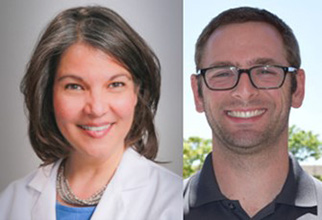
Melissa Gonzalez, Ph.D., and Joseph Hoover, Ph.D., project leaders at the University of New Mexico (UNM) Center for Native American Environmental Health Equity Research, presented at the Partnerships for Environmental Public Health (PEPH) Plastic and Human Health webinar. Their work with the center focuses on engaging tribal communities to assess exposure to environmental pollutants.
According to their presentation, many tribal communities in the rural southwestern United States lack adequate collection, treatment, and disposal of trash. Open dumping and burning solid waste are common practices that could increase exposure to metals for communities already burdened by environmental health disparities.
The center’s Community Engagement and Dissemination Core team worked with community partners to identify sampling sites. They prioritized dumping areas that were closer to homes, burned more frequently, and impacted a wider array of environmental media such as soil, water, and plants.
The team is currently working to analyze data and report results back to communities. They are also collaborating with the UNM Superfund Research Center to investigate plant uptake of microplastics as a remediation strategy.


